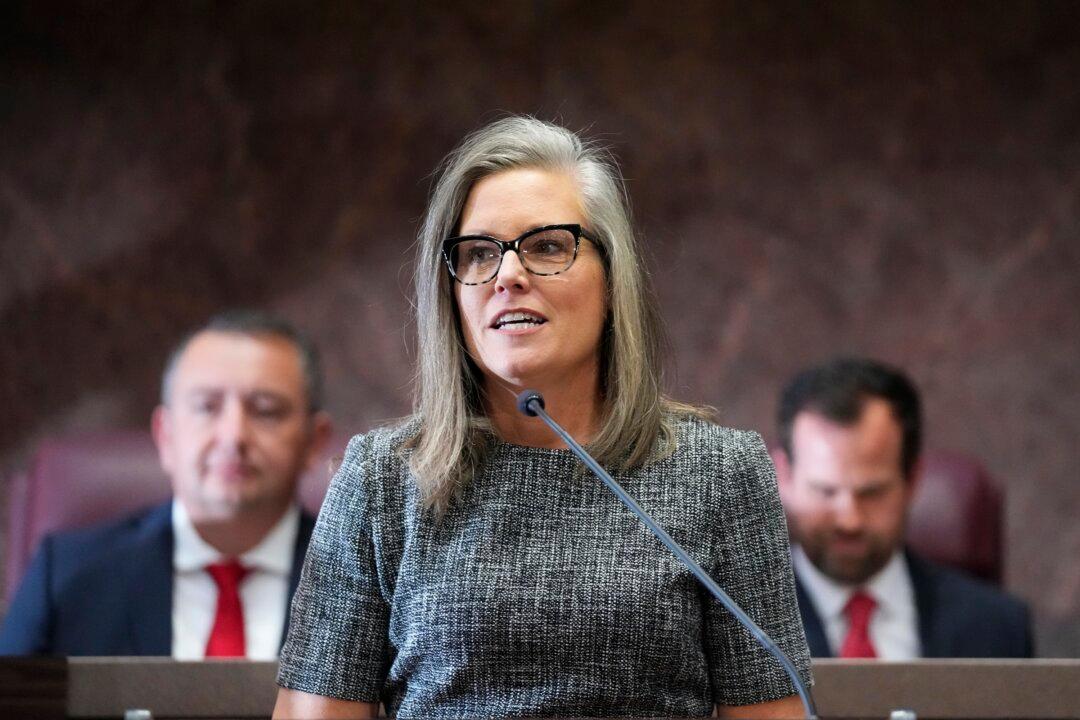Arizona Gov. Katie Hobbs does not have to carry out the execution of a convicted murderer, the Arizona Supreme Court ruled on March 22.
Justices rejected a bid from Karen Price, whose brother was killed by Aaron Gunches in 2002.

Arizona Gov. Katie Hobbs does not have to carry out the execution of a convicted murderer, the Arizona Supreme Court ruled on March 22.
Justices rejected a bid from Karen Price, whose brother was killed by Aaron Gunches in 2002.